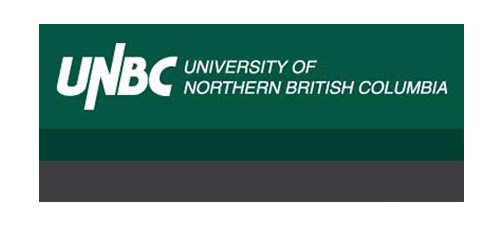Classes at UNBC in which students will be present at the university for face-to-face instruction will end after Wednesday due to concerns about the spread of coronavirus.
Starting Thursday, UNBC students and their instructors be required to use alternate delivery models such as using classroom cameras and microphones and home computer screens to allow students to interact with their instructors through internet connections.
Interim president and vice-chancellor Geoff Payne said the university is prepared to move up the date when that takes effect but it will no later than Wednesday.
“The coronavirus (COVID-19) pandemic is a fluid, rapidly evolving situation,” said Payne, in a message posted on the university website, unbc.ca. “Your health and safety is my top priority. In consideration of that, we are actively planning for all contingencies across the University, including transitioning away from face-to-face classes and exams.
“If faculty need assistance regarding virtual delivery, or support for other course-delivery alternatives, the Centre for Teaching, Learning and Technology (CTLT) is available to provide additional levels of support. If you have any questions, please contact your program chair, dean or Anne Sommerfeld, Director of the CTLT. I also ask that faculty clearly communicate their plans to their students."
Payne said university officials will continue to follow the advice of Northern Health, the provincial health officer and the Ministry of Advanced Education, Skills and Training.
“We are taking these steps to ensure the safety of our UNBC community and are seeking alternate methods of ensuring we meet learning outcomes while continuing to serve our students in the best possible manner," said Payne.
Payne said the semester will be completed using alternate delivery methods and testing and evaluation of students will also be completed.
“I understand that some situations, such as labs and practicums, present a challenge,” Payne said. “We do have some flexibility regarding in-person attendance in these cases, based on guidance from public health officials. To facilitate this, faculty can work with program chairs, deans and the safety and security office to ensure a safe learning environment for all involved. Faculty must approve their plans for these exceptional circumstances with the deans.”
UNBC environmental science professor Peter Jackson spent the weekend trying to figure out a plan that will work best for his students to take them through the end of the semester April 9. He’s also trying to determine the best method to deliver his lectures, either electronically on recorded videos or through printed material.
“After Wednesday we won’t be doing face-to-face instruction and won’t even be in the classroom, so it’s up to the individual instructor in each individual course to figure out how they’re going to complete the semester,” said Jackson. “We already have some lecture courses that are web delivery.”
One of the recommended precautions to prevent spread of the coronavirus is to maintain social distancing, keeping at least two metres away from another person, and Jackson’s wife Chris, a senior geography lab instructor, wonders how classroom isolation will be possible for students whose courses have lab requirements which entail hands-on interactions.
“How can you actually do the lab stuff without face-to-face, how do you make that work,” she asked. “For social distancing you’ll have to get approval from people. We don’t know yet, we have to go through a process to ask for it if we want to try. There isn’t one blanket solution.”
Testing will also pose a problem if the students are not in a classroom and the Jacksons anticipate other assessment methods will be required for the students to prove they know the course material. The exam period runs from April 14-24.
UNBC endured a two-week faculty strike at the end of the term in December and the planning process the instructors faced before the students returned to classes just before the break is similar to what teaching staff at all post-secondary schools in the country are struggling with right now.
"It’s basically a lot of the same decision-making that had to happen in short order and we’re practiced,” said Chris Jackson. “We’re had our learning curve and now we’re better at it.”
The campus will remain open until further notice. The library, food services, Northern Sport Centre, and student housing will be kept open, however food service will be curtailed because the students will not be there for classes.



